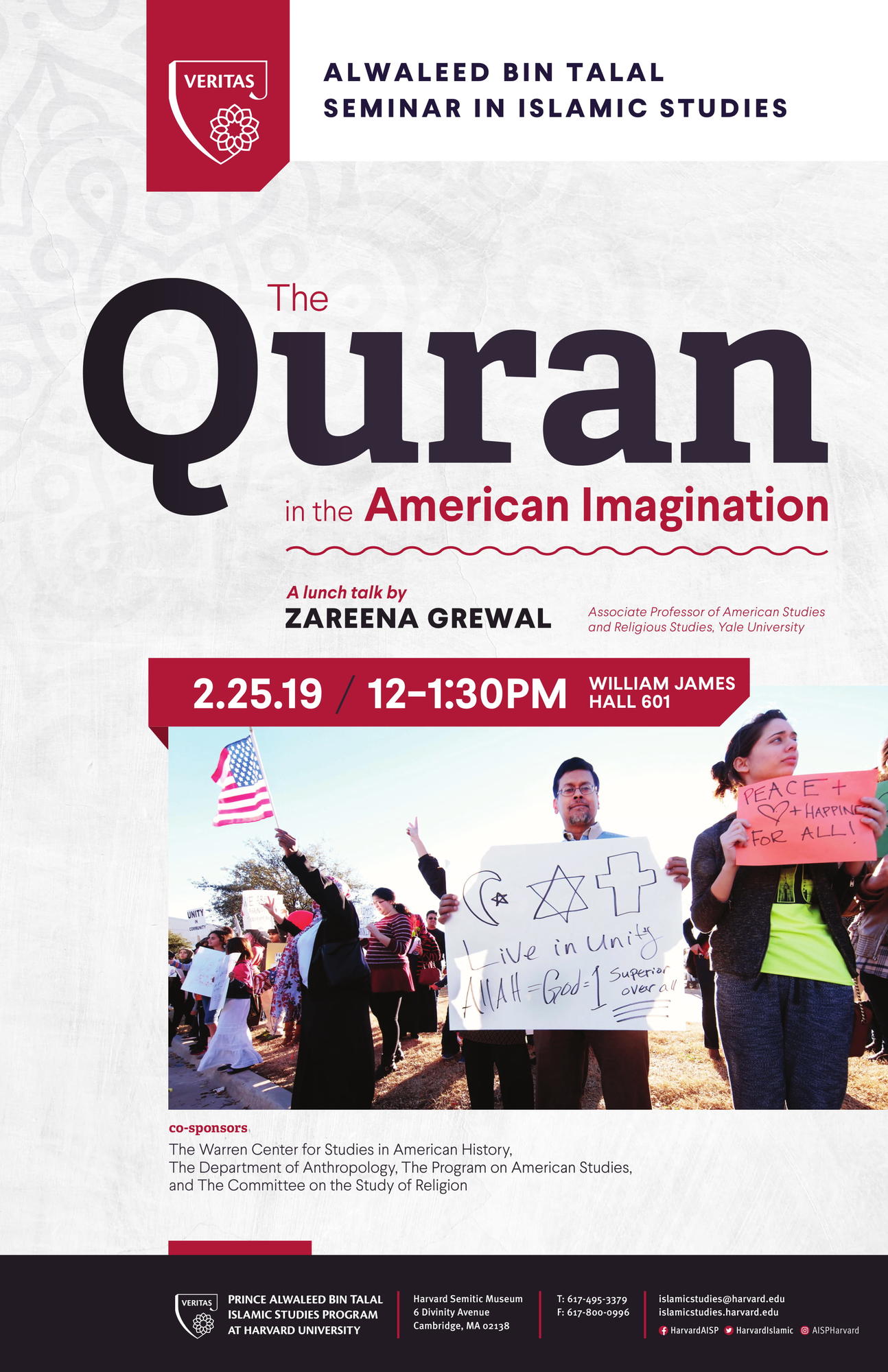Date:
Location:
Lecture Recap by Farah El-Sharif
Seminar Coordinator / PhD Candidate in Islamic Intellectual History
The Alwaleed Islamic Studies Seminar hosted Professor Zareena Grewal, Associate Professor of American Studies, Religious Studies, and Middle East Studies at Yale University on February, 25th for an intimate round table seminar.
Professor Grewal is a historical anthropologist and a documentary filmmaker whose research focuses on race, gender, religion, nationalism and transnationalism across a wide spectrum of American Muslim communities.
Her seminar previewed her forthcoming book, “Is the Qur’an a Good Book?” and the various ways the Qur’an has been represented and perceived in the American public sphere and imagination.
Professor Grewal’s talk centered on the idea of the Qur’an is one of the most iconic objects in American debates about racial and religious tolerance. The central question, if the Quran is a "good” book stems from the “good” vs. “bad” Muslim dichotomy that is often subjectively deployed when talking about categories related to Western ideations of Islam and Muslims (Mamdani).
Showing images uploaded by anti-Muslim internet users, such as photos of bullet-ridden photos of mushafs, Professor Grewal asks, in the American imagination, what is it about the Qur’an that makes it such a symbol of contention? Is it like the Bible and other scriptures? If it is inherently different, how so? Does it represent a wholesale idea of “shari’a” which makes it stand opposition to the American constitution? How does this paradigm of politically-charged representation correspond with American attitudes towards religion, scripture, foreignness and the “other”? These questions and more enriched the scope of Professor Grewal’s talk.
Professor Grewal also shed light on the familiarity of the American mainstream with certain Arabic words, such as “fatwa”, “shari’a” and “Allah” and the political utility of leaving these words untranslated in many instances, whether it is in popular culture or the hallways of Harvard Law School, where a Qur’anic verse is hung at the entrance.
Her methodology combines ethnographic and cultural studies analyses with historical research to trace the place of the Islamic scripture in the American imagination, particularly in relation to “politically promiscuous nature of tolerance” (Brown). The materials she deploys range from violent Islamophobic Reddit images to Thomas Jefferson’s Qur’an.
Professor Grewal ended her talk by showing pages from Sandow Birk’s “American Qur’an” to showcase some of the less combative ways Americans have adopted and reimagined the narrative of the Qur’an. While Grewal noted how Birk took on some traditions to mimic classical Islamic manuscripts, such as the way he hand-transcribed the entire translated text of the Qur’an in text, she also indicated how Birk’s calligraphy uses an American tradition of writing - that of the street letters of urban graffiti from his Los Angeles neighborhood. She concluded that while she doesn’t consider Birk’s text a sacred or religious experience, it is certainly an important example for the narrative of contemporary American conversations with the Qur’an.

